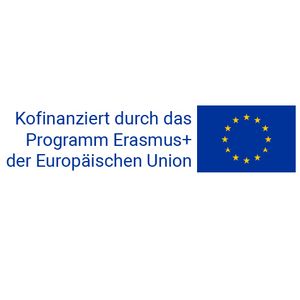
Harz University of Applied Sciences is granted Erasmus+ funding
There are thousands of data scientists in Europe who make their skills available for free. Now these volunteers are supported by the EPSILON project of Harz University of Applied Sciences.
Today, data is one of the greatest treasures held by companies in order to run processes efficiently and be competitive. Understanding, preparing and exploiting this data costs money. Because this field is new and there is a lack of specialists in the labour market, often only large companies can afford access to data science.
This is too often the case, as many data experts apparently believe, since many of them help out small companies and associations in their free time. “These are individual IT experts and regional initiatives that recognise how important digitisation is for the existence of an organisation”, explains Prof. Theo Berger of Harz University of Applied Sciences, who noted the phenomenon during his time as a manager in the field of data science and artificial intelligence at the business consultancy Deloitte.
Since August 2020, Berger is Professor for Statistics and Data Science at the Faculty of Business Studies, and EPSILON is one of his first research projects here: “Many data-for-good initiatives only network on a regional level, and because of the large fluctuation in volunteers, an organised knowledge management is required to make the acquired knowledge available to other experts.” Typical projects are free clothing stores: volunteer data scientists have already shown repeatedly how to organise them efficiently, from the delivery of the packages to the search for the suitable item. “There is much that one shouldn’t have to constantly reinvent. The solutions and experiences are already out there.”
To enable better networking, Berger is planning a knowledge platform – by Europeans, for Europeans. The first step in setting up the platform was taken together with a Portuguese project partner, Nova University Lisbon, where the subject of data science has a solid academic grounding. There are also close links to “Data Science for Social Good Portugal”, one of the leading European initiatives in this field. “We can use this network’s contacts to identify problems, develop prototypical work processes and tools and present and test best practices”, says the 38-year-old, who himself studied for a while at Nova University Lisbon. “At the same time, awareness of the knowledge platform will automatically spread among the volunteer data scientists, and we simplify access to the relevant knowledge in the field of data science for all involved. In this way, we multiply our impact on social institutions”.

The technical organisation and design of the platform is in the hands of another partner, the University of Cyprus. How well the idea of a European knowledge platform works for further data-for-good initiatives will be discovered in the project phase running until 2025, through the founding of a new team in Lithuania together with the University of Vilnius. “This transfer is particularly important to us, because we want to lower the barriers to data science services for as many as possible”, says Prof. Theo Berger about the aims of EPSILON. This also falls within the goals of the Erasmus+ funding programme and its national agency DAAD. After all, the main audience is smaller companies without large budgets or individual business owners who need a programme code. Whether in Lisbon, Vilnius, Nicosia or in the Harz.
The students of Harz University of Applied Sciences also stand to gain from the EPSILON project, because it will give them the opportunity to collaborate on real projects: What are the challenges of data-driven projects, and how can they be addressed? Along the way, they also build bridges to their European colleagues.
EPSILON stands for European Platform for Data Science: Incubation, Learning, Operations and Network. The project’s homepage offers detailed information.
More information about Prof. Dr Theo Berger’s research is available on his personal homepage. A portrait written when he started at Harz University of Applied Sciences can be found here: “Young, dynamic, strong in research”
Prof. Dr Theo Berger teaches at Harz University of Applied Sciences at the Faculty of Business Studies, in the fields of Statistics, Quantitative Methods, Computer-Assisted Statistics, Decision Models and Game Theory. Students can study Data Science as a master programme at the Faculty of Automation and Computer Science.

22.06.2022
Author: Claudia Aldinger
Image author: © Graphic: Anna Gerold
Image rights: © Harz University